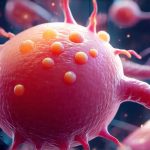The pervasive presence of sugar in modern diets has led to an alarming increase in both obesity and related health problems. Beyond simple overconsumption, many individuals struggle with intense cravings for sugary foods, often experiencing a sense of compulsion that resembles addiction. While willpower is frequently cited as the solution, recent research suggests a far more complex interplay between our gut microbiome – the trillions of bacteria residing within our digestive system – and these powerful sugar urges. This isn’t merely about lacking self-control; it’s increasingly understood that certain microbial imbalances can drive cravings, effectively hijacking our reward systems and making it incredibly difficult to resist sweet treats.
Traditional approaches to tackling sugar addiction often focus on restriction or substitution, but these methods frequently fall short long-term. This is because they don’t address the underlying biological mechanisms fueling the desire for sugar in the first place. The gut microbiome, acting as a critical interface between our bodies and the food we eat, plays a surprisingly significant role in this process. It influences not only digestion and nutrient absorption but also neurotransmitter production, immune function, and even brain activity – all factors that can contribute to cravings and addictive behaviors. Understanding this connection is key to developing more effective strategies for managing sugar intake and promoting overall health.
The Gut-Brain Axis And Sugar Reward Pathways
The relationship between the gut microbiome and the brain isn’t a one-way street; it’s a bidirectional communication system known as the gut-brain axis. This intricate network involves multiple pathways, including the vagus nerve (a direct neural connection), the immune system, and the production of various neurochemicals. The bacteria in our gut aren’t just passive bystanders – they actively influence these pathways. For instance, certain microbes can produce neurotransmitters like dopamine and serotonin, which are crucial for mood regulation and reward processing. An imbalance in gut microbiota composition—dysbiosis—can disrupt this delicate balance, potentially leading to altered brain function and increased susceptibility to cravings.
Specifically concerning sugar, some bacteria thrive on it, while others are suppressed by it. When we consume a lot of sugar, we feed the “bad” bacteria that flourish in its presence, promoting their growth and further reducing the diversity of our microbiome. This can create a vicious cycle where an imbalance increases cravings for more sugar to continue feeding those dominant microbes. Moreover, these microbial metabolites (byproducts of bacterial metabolism) can directly impact reward pathways in the brain. Research suggests that specific bacteria may produce compounds that mimic or enhance the rewarding effects of sugar, leading to addictive-like behavior.
The gut microbiome also influences inflammation levels within the body. Chronic low-grade inflammation has been linked to impaired dopamine signaling and reduced sensitivity to rewards. This means that even if we attempt to satisfy a craving with sugar, the reward may be diminished, prompting us to consume more in an attempt to achieve the same level of satisfaction – a hallmark of addiction. Restoring microbial balance can therefore address multiple aspects of sugar cravings simultaneously, from neurotransmitter production and inflammation to direct effects on brain reward centers. Understanding the link between gut inflammation is crucial for managing these processes.
How Specific Microbes Influence Sugar Cravings
Identifying specific microbes linked to sugar cravings is an area of ongoing research, but several key players are emerging. Candida albicans, a common yeast found in the gut, has been strongly associated with increased sugar intake. When Candida overgrows (often fueled by a high-sugar diet), it releases substances that damage the intestinal lining, leading to “leaky gut” and systemic inflammation. This can further exacerbate cravings and impair nutrient absorption. Similarly, certain strains of Streptococcus bacteria have been shown to increase sugar preference in animal studies.
Conversely, microbes known to promote a healthy gut – like Bifidobacteria and Lactobacilli – can help reduce sugar cravings by improving gut barrier function, reducing inflammation, and modulating neurotransmitter production. These beneficial bacteria compete with the “bad” bugs for resources, effectively limiting their growth and restoring microbial balance. Furthermore, they produce short-chain fatty acids (SCFAs) like butyrate, propionate, and acetate which have been shown to positively influence brain health and regulate appetite.
It’s important to note that diversity is key when it comes to gut bacteria. A diverse microbiome is more resilient and better equipped to resist imbalances. Factors like diet, stress, antibiotic use, and environmental toxins can all negatively impact microbial diversity, increasing the risk of sugar cravings and addiction. A healthy gut isn’t about eliminating bacteria; it’s about fostering a thriving ecosystem. This relates closely to the connection between IBS and overall gut health.
Strategies for Modulating The Gut Microbiome To Reduce Cravings
Fortunately, there are several strategies we can implement to support a healthier gut microbiome and potentially reduce sugar cravings. One of the most effective is dietary modification. Reducing overall sugar intake is crucial, but simply eliminating sugar isn’t always sustainable. Instead, focus on incorporating more fiber-rich foods like fruits, vegetables, whole grains, and legumes. Fiber acts as a prebiotic, providing nourishment for beneficial bacteria in the gut. Fermented foods – such as yogurt (with live cultures), kefir, sauerkraut, kimchi, and kombucha – are also excellent sources of probiotics, introducing beneficial microbes directly into the digestive system.
Another key aspect is stress management. Chronic stress can negatively impact the gut microbiome, increasing inflammation and promoting dysbiosis. Techniques like mindfulness meditation, yoga, deep breathing exercises, and spending time in nature can all help reduce stress levels and support a healthier gut. Additionally, minimizing antibiotic use (unless absolutely necessary) is important, as antibiotics can indiscriminately kill both beneficial and harmful bacteria.
Finally, consider the potential benefits of targeted supplementation. Probiotic supplements can be helpful for restoring microbial balance, but it’s essential to choose a high-quality product with diverse strains and adequate CFU (colony forming units). Prebiotic supplements – like inulin or fructooligosaccharides (FOS) – provide nourishment for beneficial bacteria. However, it’s crucial to consult with a healthcare professional before starting any new supplement regimen. A personalized approach, based on individual needs and gut microbiome testing (if available), is often the most effective way to modulate the gut microbiome and address sugar cravings effectively. Gut pain and additives can also play a role in this process.
The Role Of Dopamine And Microbial Influence
Dopamine, often referred to as the “reward molecule,” plays a central role in addiction. When we experience something pleasurable – like eating sugary food – dopamine is released in the brain, creating a feeling of satisfaction and reinforcing the behavior. Over time, repeated exposure to sugar can lead to dopamine receptor downregulation, meaning that more sugar is needed to achieve the same level of reward. This contributes to tolerance and eventually addiction.
The gut microbiome significantly impacts dopamine signaling. Certain bacteria produce precursors to dopamine, while others influence its metabolism and availability in the brain. Dysbiosis can disrupt this process, leading to impaired dopamine function and increased cravings for sugary foods as a way to artificially boost dopamine levels. Furthermore, some microbes may directly modulate the expression of genes involved in dopamine receptor production.
Emerging research suggests that specific microbial metabolites – like SCFAs – can positively influence dopamine signaling by promoting neuroplasticity and improving brain health. By restoring microbial balance through dietary changes and targeted supplementation, we can potentially enhance dopamine function and reduce reliance on sugar for reward. This highlights the potential of gut microbiome modulation as a novel approach to addressing addiction—one that moves beyond simply suppressing cravings and focuses on restoring underlying neurological imbalances. Emotional triggers can also significantly impact these reward pathways. In some cases, the link between menstrual cycle phases and cravings may influence dopamine levels too. It’s important to address gut inflammation as part of this process, as it can exacerbate these issues. Finally, understanding perfectionism and gut reactions is valuable in recognizing potential behavioral factors contributing to cravings.


















